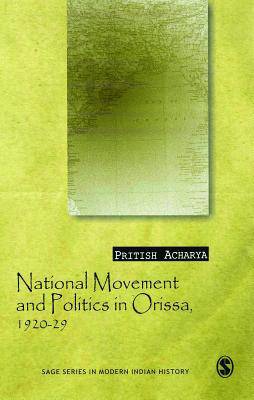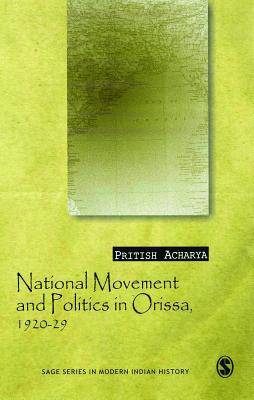
Door een staking bij bpost kan je online bestelling op dit moment iets langer onderweg zijn dan voorzien. Dringend iets nodig? Onze winkels ontvangen jou met open armen!
- Afhalen na 1 uur in een winkel met voorraad
- Gratis thuislevering in België vanaf € 30
- Ruim aanbod met 7 miljoen producten
Door een staking bij bpost kan je online bestelling op dit moment iets langer onderweg zijn dan voorzien. Dringend iets nodig? Onze winkels ontvangen jou met open armen!
- Afhalen na 1 uur in een winkel met voorraad
- Gratis thuislevering in België vanaf € 30
- Ruim aanbod met 7 miljoen producten
Zoeken
Omschrijving
This book is a comprehensive study of the national freedom movement and politics in the state of Orissa in the 1920s. The emergence of nationalism and the Non-Cooperation Movement and its aftermath, are the main issues of discussion in this work. The book focuses on the regional peculiarities like the Oriya Linguistic and Cultural Identity movement in the context of the larger national freedom struggle. Many of the earlier works, on Orissa during that period, have looked at the regional political leadership as a contrast to the nationalists outside. But, this book provides a different aspect of that period, in that it argues that the leaders of the local movement and the leaders of the national movement were never hostile to each other.
Specificaties
Betrokkenen
- Auteur(s):
- Uitgeverij:
Inhoud
- Aantal bladzijden:
- 328
- Taal:
- Engels
- Reeks:
- Reeksnummer:
- nr. 11
Eigenschappen
- Productcode (EAN):
- 9780761936275
- Verschijningsdatum:
- 21/08/2018
- Uitvoering:
- Hardcover
- Formaat:
- Genaaid
- Afmetingen:
- 174 mm x 221 mm
- Gewicht:
- 485 g

Alleen bij Standaard Boekhandel
+ 92 punten op je klantenkaart van Standaard Boekhandel
Beoordelingen
We publiceren alleen reviews die voldoen aan de voorwaarden voor reviews. Bekijk onze voorwaarden voor reviews.











